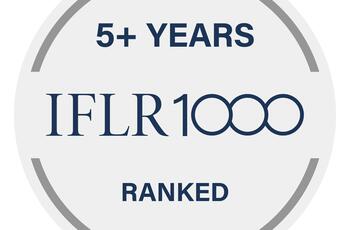
International recognition of the Dutch Scheme
Introduction
On 1 January 2021, the Dutch Scheme Act ('WHOA') came into effect. This restructuring procedure compares well to the US Chapter 11 and the UK Scheme of Arrangement or UK Restructuring Plan. Around forty schemes have been sanctioned thus far. A number of these schemes involve restructurings in an international context (like Royal IHC, Steinhoff, Vroon and Diebold Nixdorf) which raises the question whether and how an approved Dutch scheme is recognised in other jurisdictions.
The public proceedings of the WHOA are included in Annex A of the EU Insolvency Regulation (EIR). This means that court decisions within this framework will be automatically recognised in the EU (except Denmark) subject to the EIR. Undisclosed (non-public) WHOA proceedings do not have the benefit of automatic recognition and it is generally assumed that any judgment in such proceedings does not fall with the scope of the Brussels I-bis Regulation. Recognition of judgments in such undisclosed proceedings will therefore be a matter of treaty or of local rules of private international law.
In respect of the UK [1] and the US, recognition of Dutch insolvency and restructuring proceedings will depend on the local rules of private international law. In the UK this is governed by the Cross-Border Insolvency Regulations 2006 and in the US by Chapter 15 of the U.S. Bankruptcy Code, both based on the UNCITRAL Model Law on Cross-Border Insolvency. In addition, the common law applies.
In two recent WHOA proceedings the issue of recognition has been dealt with in respect of the UK (the Vroon case) and the US (Diebold Nixdorf). These cases show the WHOA is a useful tool for cross-border restructurings.
A separate Scheme in the UK – Vroon
Vroon is a Dutch shipping company, at the time owning or operating a fleet of around 100 sea-going vessels, financed by various banks with corporate guarantees, including under English law. Part of the fleet is struggling (offshore especially). The plan enabled the rightsizing of bank debt and the division of the group in two parts. One part (NewCo) is intended to continue as a going concern and the other part (ExitCo, for the non-core business) will be wound down gradually by selling the ships. The shareholder’s stake was substantially diluted to 4.91% and creditor classes are issued the remaining 95.09% equity. Bank debt in the ExitCo becomes limited recourse.
This case is the first restructuring carried out using Dutch WHOA proceedings in parallel with an English Scheme of Arrangement. An English Scheme of Arrangement was deemed necessary to deal with the UK’s ‘Gibbs Rule’, which holds that a discharge or modification of debts governed by English law through foreign insolvency proceedings will in principle not be given effect in England. Consequently, if a company has liabilities governed by English law – which is not unusual in case of Eurobonds or syndicated loans – the WHOA (generally recognised as an insolvency proceeding) cannot, with effect under English law, discharge or modify debt governed by English law without the consent of all creditors of that debt. Dissenting creditors can therefore continue to seek recourse for that debt on assets of the debtor in England for the full English law governed claim. In order to avoid that such non-consenting creditors of English law debt continue to seek recourse on assets located in England, the Rule in Gibbs prompted Vroon to also make use of the English Scheme of Arrangement in combination with the WHOA-plan. The English Scheme was sanctioned by the High Court of England and Wales.
Lesson learned
- The Dutch Scheme proceedings can be used in combination with the English Scheme of Arrangement to ensure the restructuring is effective in England.
Recognition in the US – Diebold Nixdorf
Diebold Nixdorf is an NYSE listed, overindebted but viable ATM maker. Diebold Nixdorf commenced parallel proceedings in the Netherlands and the US to implement a debt restructuring plan. The plan contemplates among other things a pre-packed Chapter 11 plan under the US Bankruptcy Code, a scheme to be filed by the Dutch subsidiary of Diebold Nixdorf under the WHOA and the recognition of such WHOA scheme pursuant to proceedings to be commenced under Chapter 15 of the US Bankruptcy Code. To effect the latter, the US Court would among other things need to affirm that the WHOA proceedings qualify as a ‘’foreign main proceeding’’, pursuant to Chapter 15.
The US Court considered that the WHOA shares various characteristics with the US Chapter 11, such as class voting requirements, a moratorium period, and a sanctioning hearing. It also incorporates the absolute priority rule and grants debtors rights in relation to the assumption or rejection of executory contracts.
Furthermore, the US Court held that the WHOA proceedings exhibit all the characteristics of collective judicial proceedings. The Dutch court evaluates the proposed WHOA plan, which includes an assessment of whether the creditors in the designated voting classes were appropriately grouped. The WHOA focuses on debt adjustment, subjects the involved parties to oversight by a court, and aims to facilitate a comprehensive reorganization. Given that the proceeding and the WHOA scheme are essential to the global restructuring of Diebold Nixdorf, and considering that the ‘’centre of main interest’’ of the relevant Diebold subsidiary is in the Netherlands, the US Court affirmed that the WHOA proceedings qualify as a "foreign proceeding" within the meaning of 11 U.S.C. § 101(23). Finally, the scheme was recognised by the US Court.
Lesson learned
- The WHOA has been recognised as a foreign main proceeding by a US court under Chapter 15 of the US Bankruptcy Code which is based on the UNCITRAL Model Law on Cross-Border Insolvency, and on that basis is a viable tool for a restructuring to be recognised in the US.
- Due to Brexit, the EU Insolvency Regulation ceased to apply in the UK. Consequently, any decision and legal effect from a public scheme under the WHOA will – similar to an undisclosed WHOA - not be automatically recognized in the UK.
80x80-cover-75.jpg)







